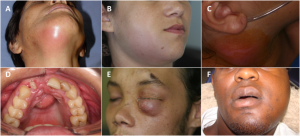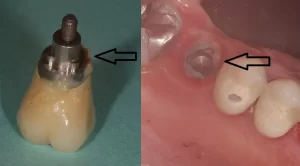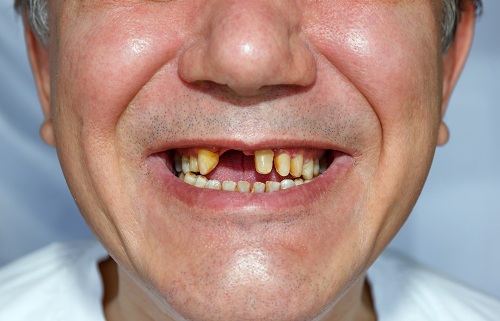What Happens If a Tooth Infection Spreads to the Jaw?
Introduction
Tooth infections can be painful and uncomfortable, but when left untreated, they can lead to more serious complications. One such complication is when the infection spreads from the tooth to the jaw. This can result in severe consequences and require immediate medical attention. In this article, we will explore the potential dangers of a tooth infection spreading to the jaw and the importance of timely treatment.
The Source of the Problem: Tooth Infection
A tooth infection, also known as a dental abscess, occurs when bacteria invade the dental pulp, which is the soft tissue inside the tooth containing blood vessels and nerves. This infection can stem from untreated cavities, cracked teeth, or gum disease. As the bacteria multiply, they form a pocket of pus at the root of the tooth, causing swelling and intense pain.
How Does the Infection Spread to the Jaw?
If a tooth infection is left untreated, the bacteria can gradually spread beyond the tooth’s root and into the surrounding tissues. The infection may move into the jawbone, which supports and houses the teeth. Once the bacteria infiltrate the jawbone, a new set of complications arises.
1. Jawbone Osteomyelitis
When a tooth infection spreads to the jaw, it can lead to a condition called jawbone osteomyelitis. This is a serious and potentially life-threatening condition where the infection causes inflammation in the jawbone. The infected bone becomes weak and loses its ability to adequately support the teeth, leading to potential tooth loss.

2. Abscess Formation in the Jaw
As the infection progresses, it may cause the formation of another abscess, but this time in the jawbone itself. Jaw abscesses are extremely painful and can cause swelling in the face and neck, making it difficult to open the mouth or chew properly.
3. Spread of Infection to Surrounding Areas
The jawbone is in close proximity to other critical structures, such as the sinuses, nerves, and blood vessels. If the infection spreads further, it can reach these neighboring areas, leading to a range of complications. Sinusitis, nerve damage, and even the formation of a life-threatening blood clot (cavernous sinus thrombosis) are possible outcomes.
Signs and Symptoms of a Spreading Tooth Infection
Recognizing the signs and symptoms of a tooth infection that has spread to the jaw is crucial for seeking prompt medical attention. Some common indicators include:
1. Severe and Persistent Pain
The pain from a tooth infection can be excruciating, and if it spreads to the jaw, the intensity of the pain may increase significantly. The discomfort can be continuous and may not subside with over-the-counter painkillers.
2. Swelling and Tenderness
The affected area around the infected tooth and jaw may become swollen and tender to the touch. This swelling can also extend to the face and neck.
3. Difficulty Opening Mouth
Due to the swelling and inflammation, you may experience difficulty in fully opening your mouth. This can make eating and speaking challenging.
4. Fever and General Malaise
As the infection spreads, your body’s immune system may react, leading to symptoms such as fever, fatigue, and a general sense of being unwell.
Complications of Untreated Tooth Infection in the Jaw
Ignoring a tooth infection and allowing it to spread to the jaw can have severe consequences. Some of the complications include:

1. Bone Destruction
Jawbone osteomyelitis can result in the destruction of bone tissue in the jaw. This can weaken the jawbone and cause it to lose its ability to support teeth properly, potentially leading to tooth loss.
2. Systemic Infections
In severe cases, the infection can enter the bloodstream, causing a condition known as bacteremia. From there, it can spread to other parts of the body, leading to systemic infections and jeopardizing vital organs. For dentistry practice in ashfield see this.
3. Ludwig’s Angina
Ludwig’s Angina is a rare but life-threatening complication that can arise when a tooth infection spreads to the floor of the mouth and the neck. It can cause severe swelling, obstructing the airway and leading to difficulty breathing.
4. Septicemia
If the infection continues to spread unchecked, it can lead to septicemia, commonly known as blood poisoning. This condition occurs when bacteria overwhelm the bloodstream, causing a severe immune response and potentially becoming fatal.
Treatment and Prevention
Prompt and appropriate treatment is essential to prevent the spread of a tooth infection to the jaw. Treatment options may include:
1. Root Canal Therapy
In the early stages of a tooth infection, a root canal procedure may be sufficient to remove the infected pulp, disinfect the root canal, and save the tooth from extraction.
2. Extraction
In cases where the infection has caused extensive damage to the tooth and surrounding structures, extraction may be necessary to prevent further complications.
3. Antibiotics
To combat the infection and prevent it from spreading, your dentist or doctor may prescribe antibiotics. It is crucial to take the full course as directed.
4. Drainage
In cases of abscess formation, your dentist or oral surgeon may need to drain the pus to relieve pain and facilitate healing.
To prevent a tooth infection from spreading to the jaw, it is essential to maintain good oral hygiene practices, including regular brushing, flossing, and dental check-ups. Treating cavities and gum disease promptly can also help prevent tooth infections.
Conclusion
A tooth infection is not something to take lightly. Ignoring or delaying treatment can lead to severe consequences, including the spread of infection to the jaw. The resulting complications can be painful, debilitating, and even life-threatening. If you suspect a tooth infection or experience any of the symptoms mentioned, seek professional dental care immediately. Your oral health is crucial to your overall well-being, and timely treatment can make all the difference in preserving your smile and safeguarding your health. Remember, prevention is always better than cure, so take good care of your teeth and seek regular dental check-ups to catch any potential issues early on.





